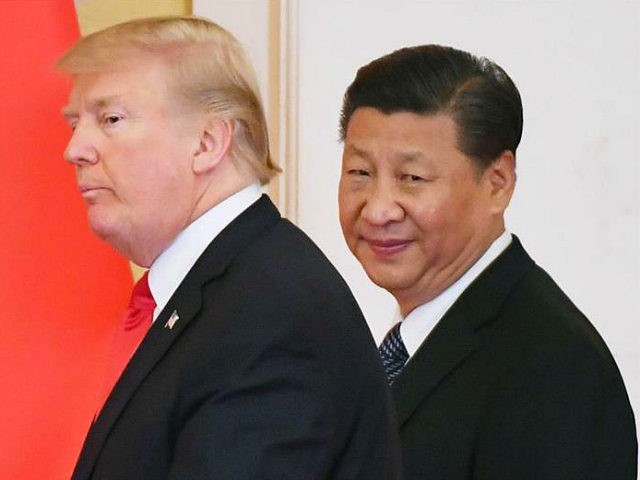China’s Global Times on Sunday editorialized on the importance of the U.S. midterm elections, recycling a few American mainstream media narratives and bromides to conclude the fractious United States is less stable and reasonable than authoritarian China.
According to the Global Times, Chinese social media users are more interested in the 2018 midterms than normal because they hope more China-friendly forces will prevail over President Donald Trump and his Republican Party:
Chinese people also understand that because of the midterm elections, Trump has been playing the “China card”. One moment the capricious president takes an intransigent attitude, and the next he shows an intention to negotiate. Trump even accused China of attempting to “meddle” in the midterm elections, saying that “they don’t want me or us to win because I am the first president to ever challenge China on trade.”
The midterm elections this time have caused so much chaos. As a country that always sets standards for democracy, how come the US is so divided today? Seldom has it been so hard for its society to reach consensus. Just look at the recent cases: A Trump supporter sent bomb devices to 14 opponents and a gunman who reportedly wanted all Jews to die gunned down 11 at a Pittsburgh synagogue.
The political antagonism and anxiety in US society has been escalating, and the spirit of compromise is all gone. The US elections are becoming less and less civilized and the two parties’ key politicians are sparing no efforts in the election campaign to smear their opponents instead of building consensus.
“The 2018 midterms won’t fix this divisiveness,” the Global Times predicted, placing what seems like a safe bet.
“No matter which party wins, the two parties’ politicians will always incite antagonism with each other. This has become a recurring problem of the two-party system,” the Communist paper continued.
“With the recent trade war, Beijing is keeping a clear head about the future. Chinese people also don’t want to see a U.S. extremely lacking in certainty, as it will further cloud the future of China-U.S. relations,” the editorial concluded.
America’s government-funded NPR assessed on Monday that people around the world are more interested in the 2018 midterms than usual in part because they want to know if President Trump’s significant changes to U.S. foreign policy represent more than a “passing phase,” as retired British diplomat Ian Bond put it.
NPR saw plenty of reasons for China to hope the Democrats win big in the midterm election:
In the run-up to the 2016 presidential election, the Chinese government was seen to favor Trump, in part because Hillary Clinton, as Obama’s secretary of state, had been a tough critic of China’s human rights record. Chinese officials saw Trump as a businessman with whom they could negotiate and who could be easily flattered.
Things have not turned out as Beijing expected. This year, Trump launched a massive trade war against China, imposing tariffs on roughly $250 billion worth of Chinese goods, prompting businesses to begin to move supply chains elsewhere in Asia. China’s retaliatory tariffs have taken aim at products from largely Republican states.
Should the Democrats have a strong showing on Tuesday, weakening President Trump, it will force Trump to temper his approach, writes Chinese scholar Anson Au in Hong Kong’s South China Morning Post: “Trump would have to change his approach to adopt a more moderate tone. Where before he could command, he would have to negotiate — with other countries, and within his own.”
NPR went so far as to speculate the Chinese Communist Party is holding off on scheduling some important meetings until it knows which U.S. party ended up controlling the House and Senate.

COMMENTS
Please let us know if you're having issues with commenting.